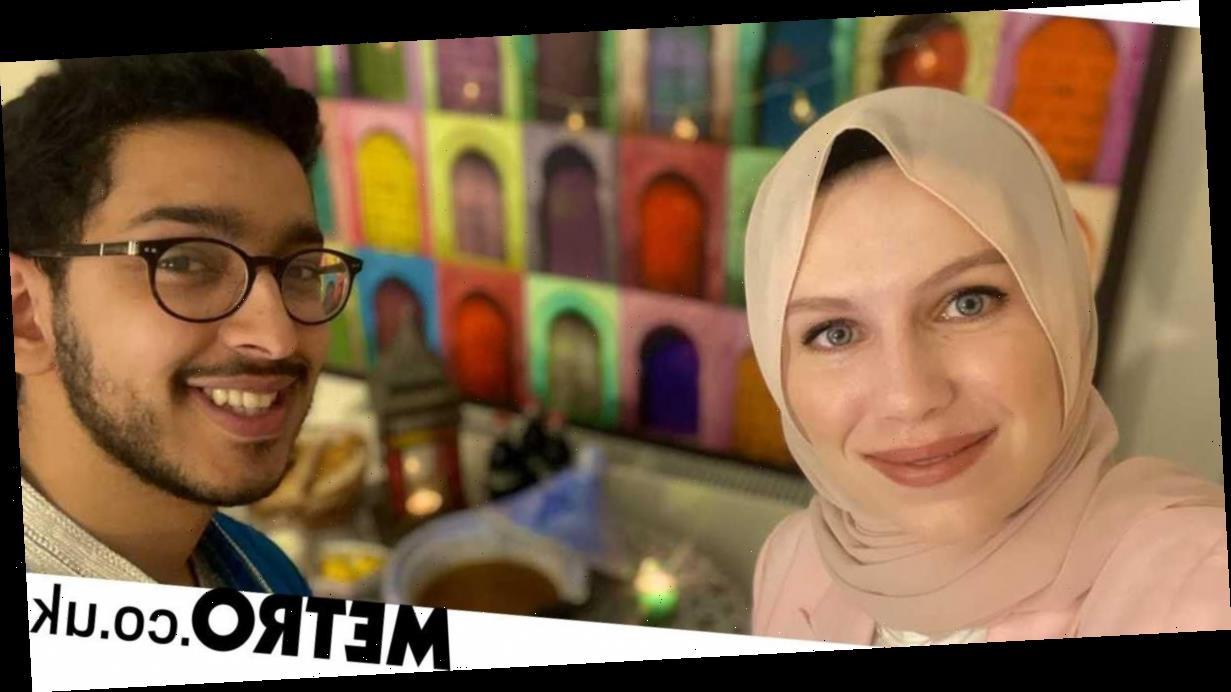Welcome back to Muslims Who Fast – our mini-series snooping into the lives of those observing Ramadan and seeing how they’re managing under a lockdown.
Today we’re with a small family who invited us to see the Tunisian-themed iftar they prepared at home.
Chloe, who works in a school, and Oussama Kardi, who works at the Foreign Office, are a young married couple celebrating their second Ramadan together.
They’ve put together a delectable Tunisian spread to honour Oussama’s heritage.
For Chloe, this is her fourth Ramadan as she converted to Islam four years ago. She is sometimes referred to as a revert because Muslims believe all people are born Muslim.
This Ramadan is extra special for another reason. Keep reading to find out what it is.
But before you do, here is the delicious meal they tucked into for their iftar, which they’ve described in great detail.
If you’re fasting, maybe read this after you’ve broken your fast.
So, what are you having for iftar?
Chloe: Our iftar today is Tunisian-themed, not only because Oussama’s family is from Tunisia, but because I fell in love with Tunisian food during our honeymoon.
The depth of flavours is incredible and makes for a wonderful iftar menu. The secret behind delicious Tunisian food that I learned from my mother-in-law is: fresh ingredients, generous amounts of olive oil and spices, and of-course, harissa!
We start with a light Tunisian shorba (soup) to open up our appetite, which is always accompanied by brik (a savoury pastry that is stuffed with cheese, parsley, onion, tuna, and egg, which is lightly fried in oil for a crispy crunch to complement the soup). Eating brik brings back memories of our honeymoon in the blue and white village of Sidi Bou Said in Tunisia. I really miss it, especially during lockdown.
Oussama: No Tunisian iftar is complete without the national dish of Tunisia, kosksi (couscous), which is a versatile dish that can be cooked in many ways. Today we’re having it with lamb and vegetables.
Chloe: We also have two types of salads: slata meshwiya (grilled chopped vegetables) – topped with black olives, tuna and hard-boiled egg, and garnished with olive oil – and slata Tunsiya, a typical salad that is bursting with flavour.
Slata meshwiya is usually eaten with bread, and today we have some homemade flatbread that’s topped with Nigella and sesame seeds.
Dessert is a combination of home-made Tunisian sweets to accompany the delicious mint tea, which is topped with a layer of pine nuts in typical Tunisian fashion.
Oussama: Oh, and a platter of fruit that we tuck into before dawn.
What’s a must-have Ramadan staple?
Chorba and brik is a must! Soup is a staple that you’ll find on most (if not all) Tunisian iftar tables throughout Ramadan.
What does Ramadan mean to you?
Oussama: To me, Ramadan is a journey. It’s a physical marathon and a spiritual pilgrimage. A journey of parched throats and a thousand whispered prayers. A journey of inward reflections and humble supplications.
People associate Ramadan with the physical fast (yes, not even water!) but it’s much more than that. You starve your body but you’re feeding your soul, and it gives you time to reflect on your blessings.
Chloe: Yes, exactly that – reflection and discipline. You look beyond the creation to connect with your creator.
Do you have any particular rituals you follow?
We break our fast with Tunisian dates and milk – but the milk has a splash of orange blossom, which is a Ramadan tradition in my family to welcome the iftar with a refreshing sweetness.
What’s Ramadan under lockdown like?
We usually spend Ramadan with our family and friends. We’re either hosting iftars or we are welcomed into other homes. Losing that community feel during lockdown is quite hard, but it has been an opportunity to look inwards and reflect on what we have been blessed with.
Experiencing Ramadan during Covid-19 has been a firm reminder to appreciate what we have before it is taken away.
Any particularly fond memories of Ramadan?
This Ramadan will always be special to us – not just because of the challenges during these tough times – but because it’ll be the last Ramadan before two become three.
Do you have a story to share? Get in touch by emailing [email protected].
Share your lockdown meals in the comments section below.
Source: Read Full Article

